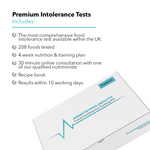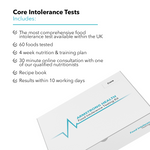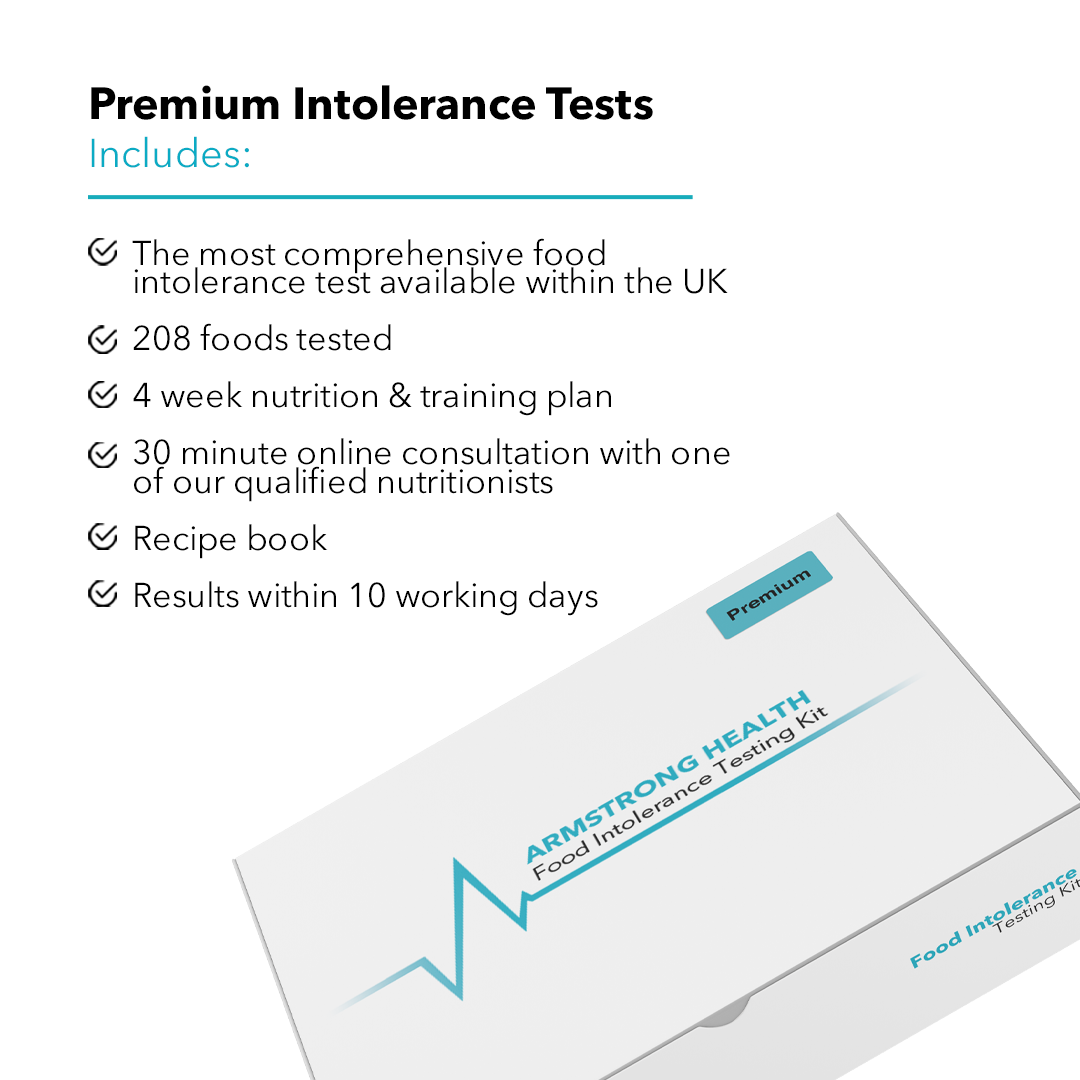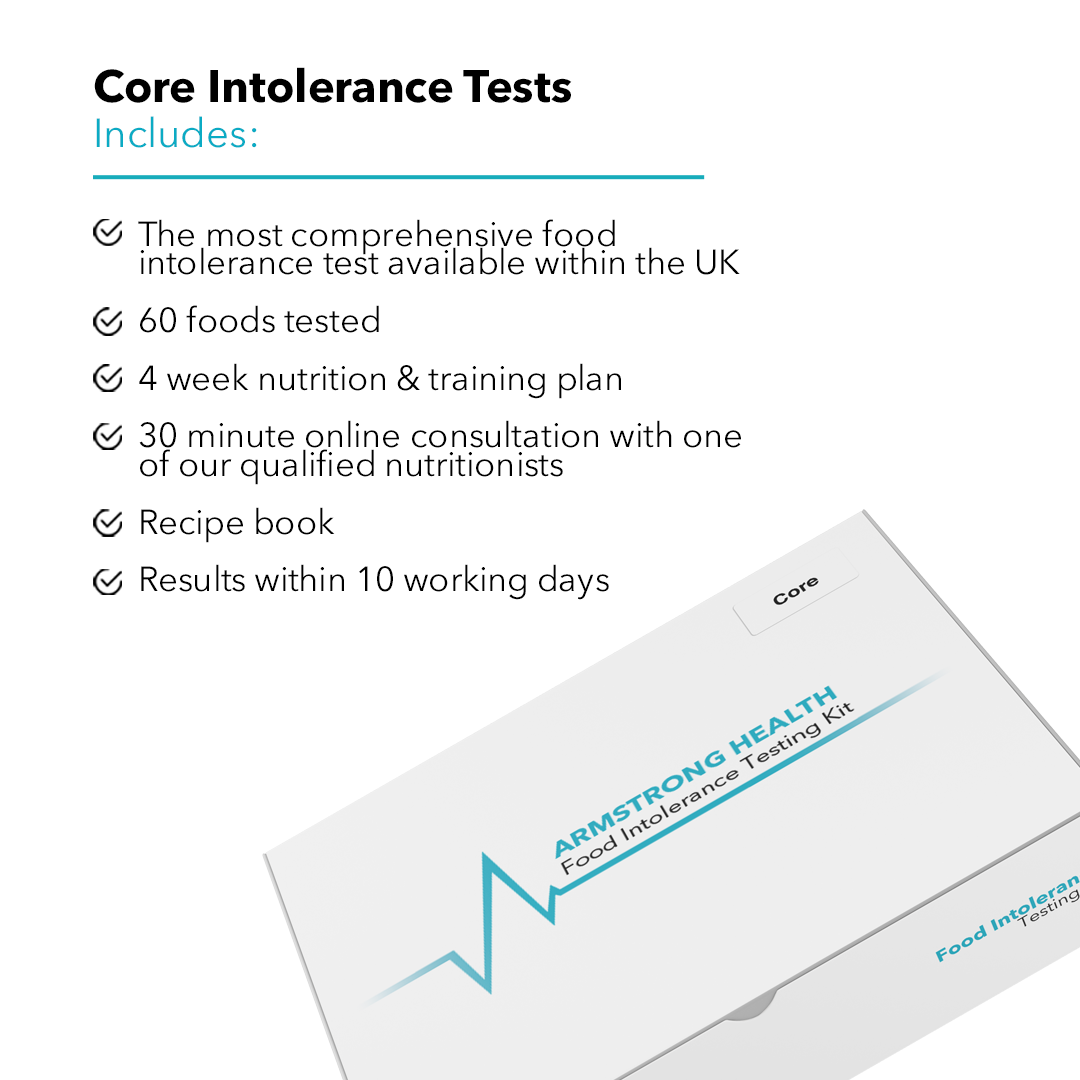Athletes, trainers, and nutritionists all agree that a balanced diet is crucial for optimal athletic performance and recovery. However, many athletes experience digestive issues, fatigue, and inflammatory responses seemingly unrelated to their training load or duration. Unbeknownst to them, these challenges may stem from an underlying food intolerance. At Armstrong Health, we offer the most comprehensive food intolerance and sensitivity tests in the UK, utilising ISO certified UK based laboratories to provide accurate insights into the role of food in athletic performance and recovery.
While some athletes may not initially realise their digestive discomforts or prolonged inflammation could be caused by specific food items, these adverse reactions can hinder their performance and overall well-being. Unaddressed food intolerances can affect energy levels, muscle recovery, joint pain, and gastrointestinal health. Consequently, this affects the body's ability to perform optimally in training and competition.
Understanding food intolerances' role in athletic performance not only offers a solution to the discomfort faced by many athletes but also provides a unique opportunity to unlock their full potential. Learn how food intolerance testing can contribute to improved performance, recovery, and a healthier lifestyle to help you excel in your athletic pursuits.
The Role of Food Intolerance in Athletes' Performance and Recovery
Inflammation and Food Intolerance: Recovery Hindered
Reducing inflammation is crucial for athletes; it promotes faster recovery and diminishes tissue damage following rigorous training or competition. Food intolerances can exacerbate inflammatory reactions within the body, compromising an athlete's ability to recover effectively. Certain foods can trigger inflammation in sensitive individuals, resulting in joint pain, muscle soreness, and swelling.
Food intolerance testing provides valuable information on an individual's unique sensitivities. By avoiding or limiting known trigger foods, athletes can minimise unnecessary inflammation and enhance recovery. This in turn allows for consistent training, improved performance, and reduced risk of injury.
The Importance of Gastrointestinal Health in Athletic Performance
A healthy gastrointestinal system plays a vital role in overall health and well-being, particularly for athletes. Nutrient absorption, energy production, and immune function are heavily influenced by gut health. When intolerances disrupt gastrointestinal function, athletes may experience symptoms like bloating, cramps, diarrhoea, and increased susceptibility to illness or infection.
By identifying specific food intolerances, athletes can create tailored dietary plans that minimise gastrointestinal issues, improve nutrient absorption, and prevent unnecessary disruptions to their training or competition schedule. Adjusting nutritional habits based on the results of food intolerance testing can be a game-changer for athletes dealing with nagging issues of gut health.
Addressing Nutrient Deficiencies: The Key to Peak Performance
Athletes with undiagnosed food intolerances may experience nutrient deficiencies due to inadequate absorption in the digestive system or ineffective dietary strategies. These deficiencies can negatively impact athletic performance, impair muscle function, and hinder the body's ability to repair and recover.
Comprehensive food intolerance testing allows athletes to identify problematic food items that may be contributing to nutrient deficiencies. Armed with this knowledge, athletes can work with healthcare professionals and sports nutritionists to develop personalised nutritional strategies that address these deficiencies and enhance overall performance.
Focusing on nutrient-dense foods while taking into account individual sensitivities not only improves general health but also optimises energy levels, strength, and endurance. This targeted approach helps athletes reach their maximum potential and reduces physical setbacks that can stem from nutritional challenges.
Food Intolerance Testing for Athletes: A Proactive Approach to Enhanced Performance
For athletes looking to improve their performance and well-being, investing in comprehensive food intolerance testing provides a springboard for tailored dietary adjustments and greater awareness of their body's unique needs. The insights gained through testing can be transformative, enabling informed decision-making, optimal training, and peak performance.
While some athletes may be hesitant to undergo testing or dismiss the potential impact of food intolerances, those who embrace the opportunity often find the benefits well worth the effort. Modifying their nutritional habits based on the results of food intolerance testing enables athletes to address gastrointestinal issues, reduce inflammation, overcome nutrient deficiencies, and unlock their full potential.
Embracing Health, Well-being, and Performance through Food Intolerance Testing
Food intolerance testing is an invaluable tool for athletes looking to optimise their performance and recovery through focused nutrition. By gaining a deeper understanding of their body's specific sensitivities and intolerances, athletes can make informed dietary choices that contribute to better health, well-being, and peak performance.
Embracing the knowledge and insights provided by the comprehensive food intolerance tests offered by Armstrong Health opens the door to improved athletic performance, recovery, and overall health. Take control of your dietary habits and unlock your full potential by investing in food intolerance testing to enhance your sporting success, and embark upon a journey towards a more efficient, healthier athletic lifestyle.




























